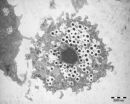This paper looks at the effect of giving up alcohol on the risk of oesophageal cancer: it is based on 17 studies providing such information, 9 of which provided data for a meta-analysis. The authors conclude that an alcohol-related increased risk of oesophageal cancer is reversible following giving up alcohol, taking up to 16 years to return to the risk level for non-drinkers. The authors estimate that about one-half of the reduction in risk of cancer may occur within in a much shorter time, perhaps within about 4 or 5 years.
Forum reviewers considered this to be a well-done analysis. Forum members emphasized, as did the authors, a number of limitations of the study. Adjustments for smoking may not have been adequate: most upper aero-digestive cancers show a strong interaction between smoking and alcohol consumption in relation to cancer risk, (there is little effect of moderate alcohol consumption among non-smokers found in studies).
Further, large differences in the alcohol-cancer association were shown in this study for different geographical regions (some associations being much higher in Asia than in Europe or North America), but such differences were not adjusted for in the main analyses. The fact that the authors of this paper did not have data permitting the separation of ex-drinkers and never drinkers (both groups being included in the "non-drinker" category), and their inability to judge the effects of the baseline pattern of drinking (regular versus binge drinking), may also be limitations to the interpretation of their results. Adjustment for such factors may have influenced the effects of stopping drinking on subsequent cancer risk, and markedly changed the calculated effects on the numbers of cancers prevented worldwide.
In any case, the fact that cessation of drinking may reduce the risk of oesophageal cancer is of importance. Other studies suggest further that reducing the amount of alcohol consumed to moderate levels rather than the complete cessation of drinking, may be associated with lowering of cancer risk among non-smokers, and low-level regular alcohol intake has been shown to have beneficial health effects on cardiovascular disease, diabetes, and other medical conditions.
###Reference: Jarl J, Gerdtham Ulf-G. Time pattern of reduction in risk of oesophageal cancer following alcohol cessation — a meta-analysis. Addiction, 107, 1234. doi:10.1111/j.1360-0443.2011.03772.x
Contributions to this critique by the International Scientific Forum on Alcohol Research were provided by the following members:
Luc Djoussé, MD, DSc, Dept. of Medicine, Division of Aging, Brigham & Women's Hospital and Harvard Medical School, Boston, MA, USA
Gordon Troup, MSc, DSc, School of Physics, Monash University, Victoria, Australia
Harvey Finkel, MD, Hematology/Oncology, Boston University Medical Center, Boston, MA, USA
Arne Svilaas, MD, PhD, general practice and lipidology, Oslo University Hospital, Oslo, Norway
David Van Velden, MD, Dept. of Pathology, Stellenbosch University, Stellenbosch, South Africa
Andrew L. Waterhouse, PhD, Marvin Sands Professor, Department of Viticulture and Enology, University of California, Davis; Davis, CA, USA
Erik Skovenborg, MD, Scandinavian Medical Alcohol Board, Practitioner, Aarhus, Denmark
R. Curtis Ellison, MD, Section of Preventive Medicine & Epidemiology, Boston University School of Medicine, Boston, MA, USA
For the detailed critique of this paper by the International Scientific Forum on Alcohol Research and a listing of references, go to http://www.bu.edu/alcohol-forum/critique-090-effects-of-stopping-alcohol-consumption-on-subsequent-risk-of-esophageal-cancer-13-september-2012/
The specialists who are members of the Forum are happy to respond to questions from Health Editors regarding emerging research on alcohol and health and will offer an independent opinion in context with other research on the subject.
Effects of stopping alcohol consumption on subsequent risk of esophageal cancer
2012-09-13
(Press-News.org) Cancer of the oesophagus is becoming more common in Europe and North America. Around 7,800 people in the UK are diagnosed each year. The exact causes of this cancer aren't fully understood. It appears to be more common in people who have long-term acid reflux (backflow of stomach acid into the oesophagus). Other factors that can affect the risk of developing cancer of the oesophagus include:
Gender – It is more common in men than in women.
Age – The risk of developing oesophageal cancer increases as we get older. It occurs most commonly in people over 45.
Smoking – The longer a person smokes and the more tobacco they smoke, the greater the risk.
Alcohol – Drinking a lot of alcohol over a long period of time increases your risk, especially if you smoke too.
Diet – Having a diet low in fresh fruit and vegetables is linked to an increased risk of oesophageal cancer.
Obesity – Being overweight is associated with a higher risk. This is thought to be because long-term acid reflux is more common in people who are overweight.
ELSE PRESS RELEASES FROM THIS DATE:
U-M guidelines help family physicians evaluate, manage urinary incontinence for women
2012-09-13
ANN ARBOR, Mich. — Millions of women experience a loss of bladder control, or urinary incontinence, in their lifetime.
It's a common and often embarrassing problem that many patients don't bring up with their doctors – and when they do, it may be mentioned as a casual side note during a visit for more pressing medical issues.
Now, new guidelines from doctors at the University of Michigan Health System offer family physicians a step-by-step guide for the evaluation of urinary leakage, to prevent this quality-of-life issue from being ignored.
"I think a lot of physicians ...
Parental divorce linked to stroke in males
2012-09-13
TORONTO, ON – Men with divorced parents are significantly more likely to suffer a stroke than men from intact families, shows a new study from the University of Toronto.
The study, to be published this month in the International Journal of Stroke, shows that adult men who had experienced parental divorce before they turned 18 are three times more likely to suffer a stroke than men whose parents did not divorce. Women from divorced families did not have a higher risk of stroke than women from intact families.
"The strong association we found for males between parental ...
Lack of oxygen in cancer cells leads to growth and metastasis
2012-09-13
It seems as if a tumor deprived of oxygen would shrink. However, numerous studies have shown that tumor hypoxia, in which portions of the tumor have significantly low oxygen concentrations, is in fact linked with more aggressive tumor behavior and poorer prognosis. It's as if rather than succumbing to gently hypoxic conditions, the lack of oxygen commonly created as a tumor outgrows its blood supply signals a tumor to grow and metastasize in search of new oxygen sources – for example, hypoxic bladder cancers are likely to metastasize to the lungs, which is frequently deadly. ...
Laser-powered 'needle' promises pain-free injections
2012-09-13
VIDEO:
The movie shows the injector firing into open air without a skin or gel target. The jet, which is approximately the diameter of a human hair, seems dispersed but a...
Click here for more information.
WASHINGTON, Sept. 13—From annual flu shots to childhood immunizations, needle injections are among the least popular staples of medical care. Though various techniques have been developed in hopes of taking the "ouch" out of injections, hypodermic needles are still the ...
IU chemist develops new synthesis of most useful, yet expensive, antimalarial drug
2012-09-13
BLOOMINGTON, Ind. -- In 2010 malaria caused an estimated 665,000 deaths, mostly among African children. Now, chemists at Indiana University have developed a new synthesis for the world's most useful antimalarial drug, artemisinin, giving hope that fully synthetic artemisinin might help reduce the cost of the live-saving drug in the future.
Effective deployment of ACT, or artemisinin-based combination therapy, has been slow due to high production costs of artemisinin. The World Health Organization has set a target "per gram" cost for artemisinin of 25 cents or less, but ...
Study of giant viruses shakes up tree of life
2012-09-13
CHAMPAIGN, Ill. — A new study of giant viruses supports the idea that viruses are ancient living organisms and not inanimate molecular remnants run amok, as some scientists have argued. The study reshapes the universal family tree, adding a fourth major branch to the three that most scientists agree represent the fundamental domains of life.
The new findings appear in the journal BMC Evolutionary Biology.
The researchers used a relatively new method to peer into the distant past. Rather than comparing genetic sequences, which are unstable and change rapidly over time, ...
Scientists use sound waves to levitate liquids, improve pharmaceuticals
2012-09-13
It's not a magic trick and it's not sleight of hand – scientists really are using levitation to improve the drug development process, eventually yielding more effective pharmaceuticals with fewer side effects.
Scientists at the U.S. Department of Energy's (DOE) Argonne National Laboratory have discovered a way to use sound waves to levitate individual droplets of solutions containing different pharmaceuticals. While the connection between levitation and drug development may not be immediately apparent, a special relationship emerges at the molecular level.
At the molecular ...
Increased dietary fructose linked to elevated uric acid levels and lower liver energy stores
2012-09-13
Obese patients with type 2 diabetes who consume higher amounts of fructose display reduced levels of liver adenosine triphosphate (ATP)—a compound involved in the energy transfer between cells. The findings, published in the September issue of Hepatology, a journal of the American Association for the Study of Liver Diseases, indicate that elevated uric acid levels (hyperuricemia) are associated with more severe hepatic ATP depletion in response to fructose intake.
This exploratory study, funded in part by grants from the National Institute of Diabetes and Digestive and ...
Poorest miss out on benefits, experience more material hardship, since 1996 welfare reform
2012-09-13
Although the federal government's 1996 reform of welfare brought some improvements for the nation's poor, it also may have made extremely poor Americans worse off, new research shows.
The reforms radically changed cash assistance—what most Americans think of as 'welfare'— by imposing lifetime limits on the receipt of aid and requiring recipients to work. About the same time, major social policy reforms during the 1990s raised the benefits of work for low-income families.
In the wake of these changes, millions of previous welfare recipients, largely single mothers, ...
Mutation breaks HIV's resistance to drugs
2012-09-13
The human immunodeficiency virus (HIV) can contain dozens of different mutations, called polymorphisms. In a recent study an international team of researchers, including MU scientists, found that one of those mutations, called 172K, made certain forms of the virus more susceptible to treatment. Soon, doctors will be able to use this knowledge to improve the drug regiment they prescribe to HIV-infected individuals.
"The 172K polymorphism makes certain forms of HIV less resistant to drugs," said Stefan Sarafianos, corresponding author of the study and researcher at MU's ...


